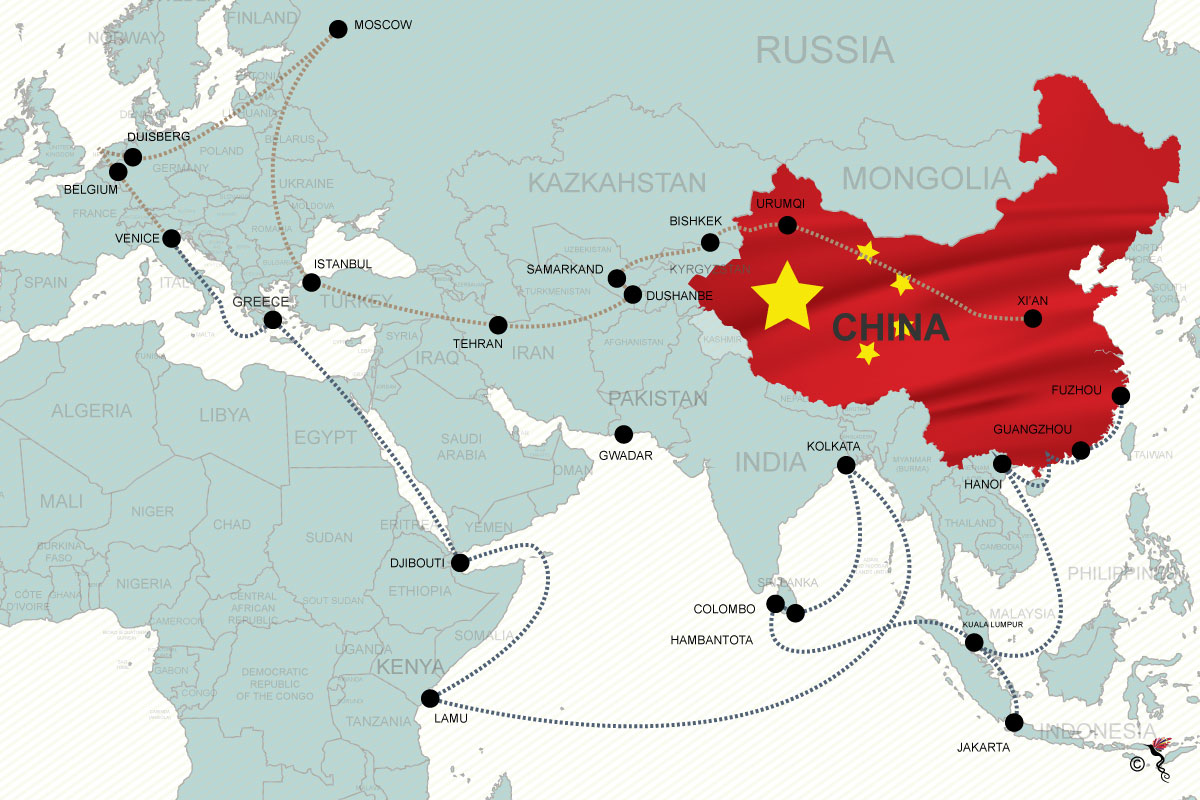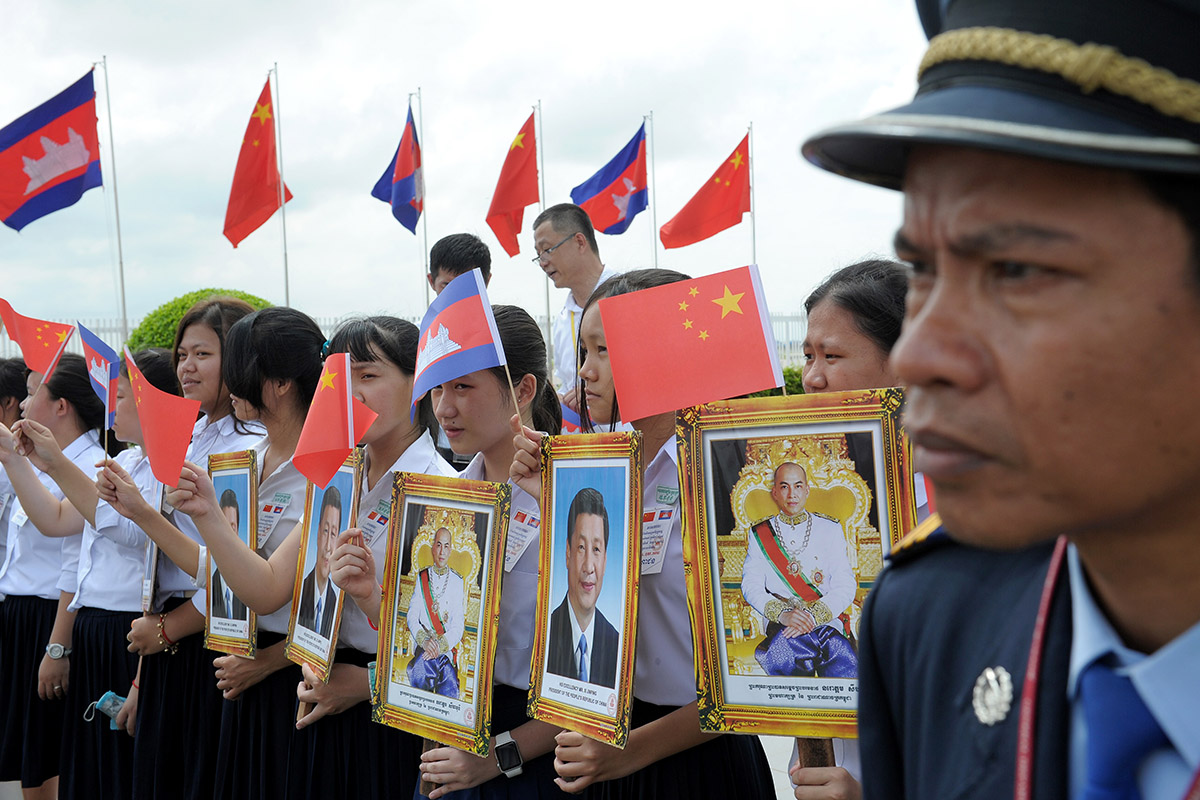Despite silencing the opposition by arresting opposition icon, Kem Sokha, controversially shutting down an English daily and facing immense criticism for his actions, Hun Sen – Cambodia’s Prime Minister – still sleeps well at night knowing that he has got the resolute backing of a regional superpower.
China has continually supported Hun Sen’s actions to protect its national security from Western powers as well as vowing to cooperate and assist the frontier nation in all circumstances.
In response, Cambodia has been immensely thankful and went so far as to say that “China understands Khmers clearly, unlike western countries, which use Kem Sokha to bolster their leverage over Cambodia’s leadership.”
Phnom Penh’s cosying up to Beijing did not occur overnight but has its roots in the 1990s following the Cambodia-Vietnam war.
Beijing initially backed Hun Sen’s key opponent, Prince Norodom Ranariddh but abandoned that position once the latter began to develop closer ties with Taiwan. China grew friendlier towards the prince’s ouster, Hun Sen who reciprocated the gesture by suspending diplomatic relations with Taiwan and has remained a huge supporter of the One China policy which seeks for a reunified China under Beijing’s rule.
The “undemocratic” ousting of Prince Ranariddh did not bode well with the US who imposed sanctions on the country in 1997 which lasted for ten years. Although relations normalised following President Obama’s first term in office, Hun Sen has always looked at the US and broadly the West, with contempt because of their tendency to act on a moral high ground with regards to human rights and basic freedoms.
His government’s preference for China is obvious in its diplomatic conduct. In 2009, Phnom Penh expelled 20 persecuted Uighur refugees who fled China to Cambodia. Beijing considers the Uighurs to be separatists who wage violent campaigns against the Chinese government. Two days later, Beijing rewarded Phnom Penh handsomely by inking 14 infrastructure deals amounting to almost one billion dollars. In 2012, Cambodia most infamously blocked the passing of a joint communique during its chairmanship of ASEAN (Association of Southeast Asian Nations) which made references to belligerent Chinese actions in the South China Sea.
Chinese aid has been pivotal to Cambodia’s economic development with some pointing to Beijing’s benevolence as part of its “debt-trap diplomacy”. Much of these investments are primed as part of China’s grandiose BRI (Belt Road Initiative) vision.

China's vision of a land and sea-based trading network under the BRI (Belt and Road Initiative).
While the US is still a substantial source of foreign aid to Cambodia, there is significant wooing on the side of the Chinese which Hun Sen’s government is giving in to. For starters, US aid comes with strings attached like improved human rights standards and better overall democracy whereas China’s doesn’t.
From 2011 to 2015, Chinese loans and investment in this frontier economy totalled a whopping five billion dollars with Chinese firms involved in the construction, mining, infrastructure and energy sectors. In 2016, during Chinese President Xi jinping’s visit to the country, 31 agreements were minted including 237 million dollars in soft loans, 500 million dollars in aid and Beijing’s cancellation of 89 million dollars of Cambodian debt. As of April 2017, Beijing’s financial commitments in terms of grants and loans reached a combined total of 4.2 billion dollars. Chinese investment has also funded 70 percent of Cambodia’s network of roads and bridges. The Cambodian government has also considered "dedollarisation" – a move away from the US dollar towards the RMB (Chinese Renminbi). It has been using the RMB as a reserve currency and encouraged its use as an alternative currency to the KHR (Cambodian riel).
Early this year, Phnom Penh in retaliation of Washington’s cancellation of a nine-year humanitarian programme conducted by the US military, pulled out of the annual “Angkor Sentinel” joint military exercise. Meanwhile, it has increased military cooperation with China and even partook in the inaugural “Golden Dragon” military exercise back in 2016.
Phnom Penh’s penchant for closer ties with China while souring relations with the US is a dangerous move not only for the country of 15 million but for the Southeast Asian region. The reduced US presence within the region in light of Donald Trump's presidency is not an invitation for ASEAN member states to shift their focus to China but to rethink their strategy on how to accommodate to this diplomatic reality without having to sacrifice their souls.
In so far, Cambodia seems to have read the signs wrongly and has embarked on a risky path, having already been branded by many as a Chinese client state. This could have repercussions on other ASEAN member nations whom still hold steadfastly to the principle of centrality – a principle which is fast escaping Hun Sen’s grip.
Cambodian foreign policy is now poised to be tested in a challenging regional environment like never before. It is now up to the diplomatic rigour of this small state to ensure it isn’t ensnared by Beijing’s niceties but as Hun Sen continues to succumb to the dragon’s pandering, that seems like an impossible feat to achieve for now.
